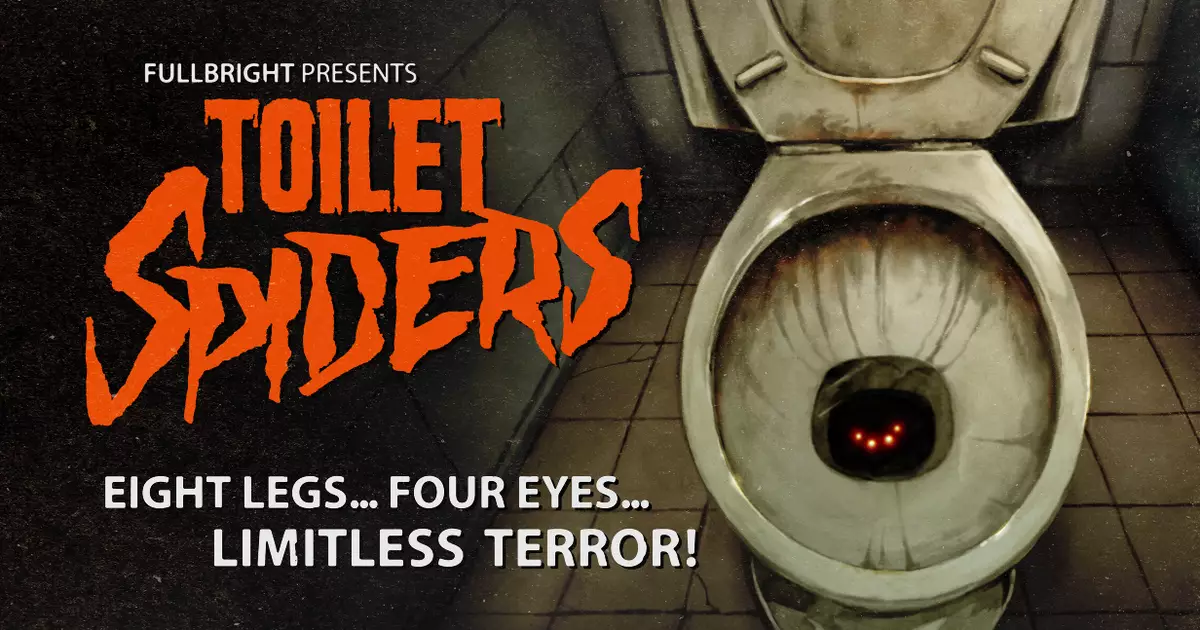Fullbright, the game studio that garnered acclaim with its innovative narrative mechanics in “Gone Home,” has made a bizarre pivot towards horror with its new release, “Toilet Spiders.” While “Gone Home” masterfully navigated the subtleties of adolescence and familial strife hidden within a seemingly ordinary house, “Toilet Spiders” shoves players into a surreal tension-filled environment that challenges their resourcefulness and bravery as they face off against grotesque, radioactive arachnids lurking in the most unexpected places—the bathroom.
The transition reflects a notable evolution from the intimate storytelling found in “Gone Home,” where players pieced together a family’s narrative through objects and environmental cues, to a peculiar horror narrative set within an Exclusion Zone. The stark difference in thematic focus raises questions about the studio’s intentions and inspirations, fundamentally altering how audiences might perceive Fullbright’s brand of storytelling.
Toilet Spiders is marketed as a lo-fi, first-person survival horror game, emphasizing an engaging blend of resource management and strategic gameplay. Players are cast as a nameless volunteer navigating crumbling environments filled with nightmarish hazards. As they collect items like obsolete light bulbs and grenades, they must also grapple with the bewildering concept of a giant spider lurking in toilets—an oddly comedic yet horrifying premise. The juxtaposition of resource scarcity against the threat of such improbable horror encapsulates a fresh take on the survival game genre.
The very notion of spider-infested toilets could resonate with a primal fear of the unexpected lurking in places we often overlook. The implicit humor in facing such an absurdity could also serve as a subtle backdrop to the game’s moral undertones. Ultimately, these facets combine to create not merely a horrifying experience, but a thought-provoking one, forcing players to confront their fears both figuratively and literally in the bathroom setting.
Fullbright’s previous titles often hinted at horror, yet “Toilet Spiders” amplifies the grotesque by leaning into the literal. Gone Home teased supernatural elements but resolved them with relatable human emotions—the horrors of hidden truths. In contrast, this new title engages with a more visceral form of dread, where players face immediate bodily threats posed by giant spiders rather than emotional turmoil.
Despite this transition, there’s an opportunity for deeper commentary. The game could symbolize the overwhelming sensations of fear and vulnerability, tying back to emotional experiences familiar to players. There lies a clever dichotomy in the absurdity of having one’s life threatened in a privy setting—one filled with mundane concerns overshadowed by existential horrors. The questions of judgment and weighing risks, as the game prompts players to consider when confronting the spiders, can easily reflect the ethical dilemmas rising in the backdrop of our societal constructs.
The release of “Toilet Spiders” emerges at a complex and transformative moment for Fullbright. Following allegations against co-founder Steve Gaynor, the studio has endured scrutiny and evolving challenges within its workplace culture. The departure of Gaynor from his collaborative role indicates a seismic shift; it raises further questions regarding the studio’s creative direction and moral compass. As they now tread into bizarre horror territory, one cannot help but wonder whether the narrative reflects personal turmoil and a studio grappling with its identity.
While the gameplay might divert attention from the studio’s past, the themes it explores can stir critical discourse about workplace dynamics, the fragility of creativity, and the lurking presence of fears—both in the game and in reality. There’s an intricate web being spun that transcends mere gameplay; it gestures towards personal narrative implications that reflect the studio’s transformation and its collective psyche.
“Toilet Spiders,” with its unorthodox gameplay and quirky horrors, positions itself as a novel entry in the survival horror genre while inviting discourse on the evolution of Fullbright as a studio. As players combat threats that are as ludicrous as they are terrifying, they are given a chance to reflect on their own confrontations with fear—be it in the bathroom or within the industry. What remains to be seen is how this new chapter will influence Fullbright’s artistic endeavors moving forward, opening the door for further exploration of the synergy between existential dread and absurdity in gaming.

